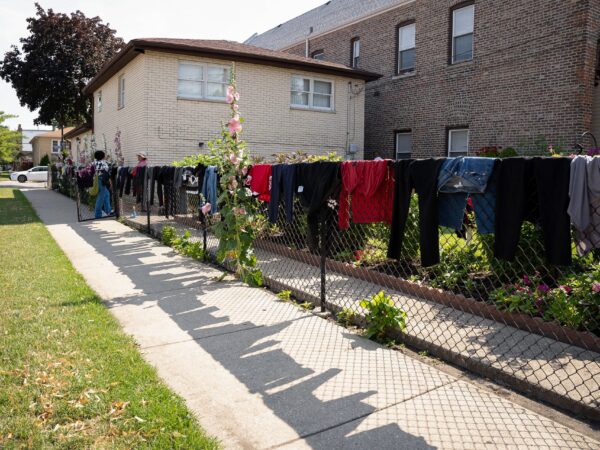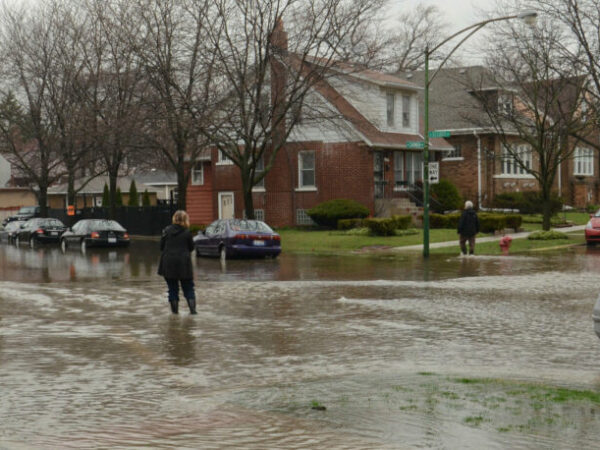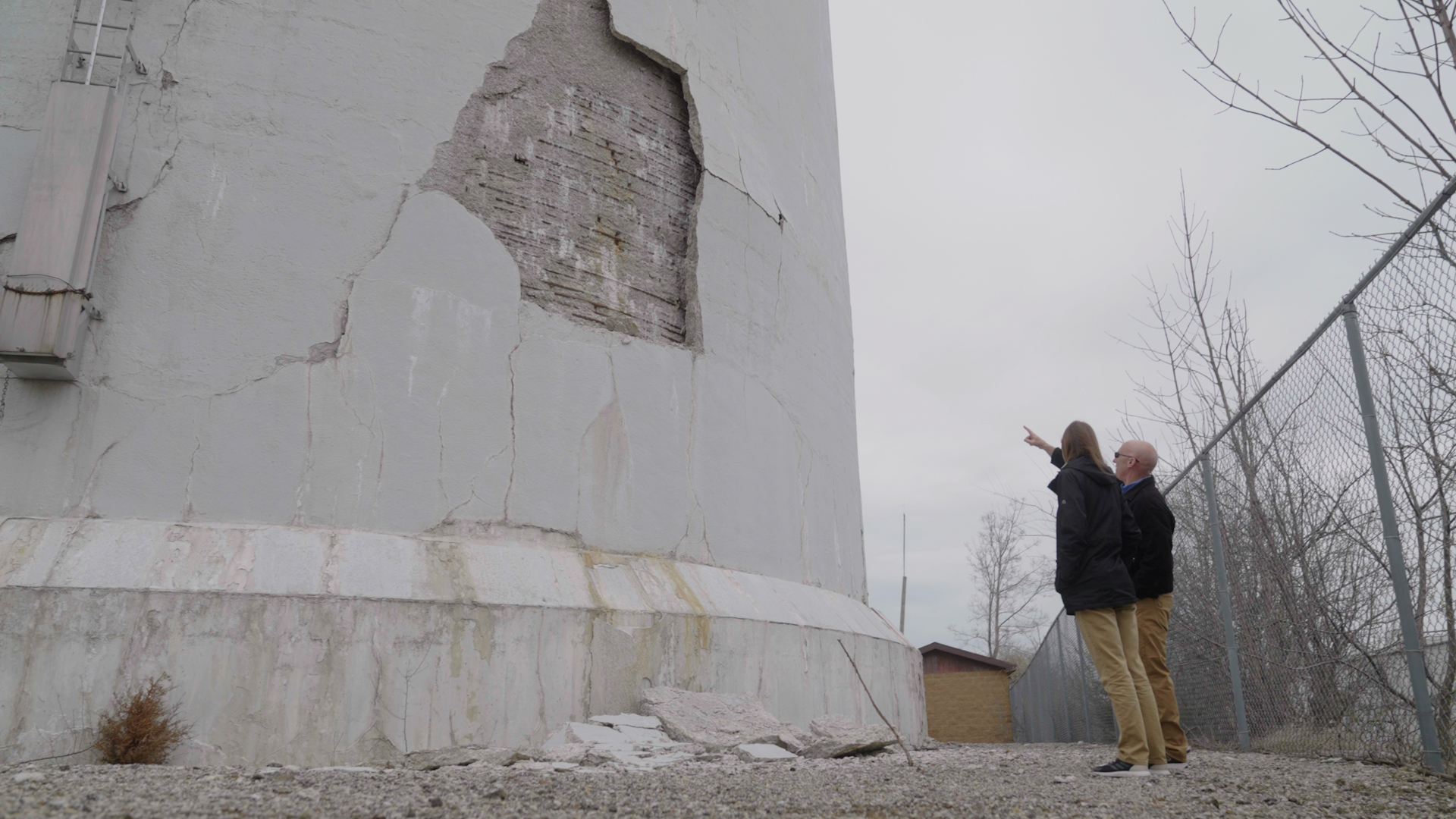
Since 2020 when Democrats swept into power by winning the presidency and taking control of both chambers of Congress, Great Lakes programs have had a tailwind of funding support from Washington.
The Infrastructure Investment and Jobs Act provided a $1 billion windfall for the region to accelerate clean up of the multiple toxic sites known as Areas of Concern that remain from the peak industrial period in the 1950’s and 1960’s.
The legislation also provided for $226 million to start construction on the estimated $858 million infrastructure project to minimize the risk of Invasive carp entering the Great Lakes. Construction isn’t imminent as the project is still in early design stages and bureaucratic hurdles remain.
Great Lakes restoration was originally funded in 2010 at $475 million annually in President Barack Obama’s first budget but was cut to $300 million when Republicans took control of the House in 2011. Funding remained flat until 2020 when it was increased to $320 million. For 2022 it’s funded at $348 million. Advocates had lobbied for $400 million.
In the 2022 mid-term election Democrats retained control of the Senate by the slimmest of margins but Republicans will be in the majority in the House, also by a narrow margin. That means House Republicans will control the agenda and most importantly, the powerful Appropriations Committee which funds the government. In general, Republicans have floated the idea of budget cuts and have signaled there will be closer oversight of the U.S. Environmental Protection Agency, a favorite target based on concerns of regulatory overreach.
What does all that mean for the Great Lakes? Does the funding tailwind become a headwind? Will Republican oversight of the EPA lead to relaxed enforcement of laws and regulations and attempts to limit the agency’s authority?
Great Lakes Now asked three regional executives for their take on what to expect come January 2023 when the government transitions.
Chicago’s Cameron Davis was President Barack Obama’s senior adviser for Great Lakes issues, primarily focused on the Great Lakes restoration program. Davis is currently a commissioner of Greater Chicago’s Metropolitan Water Reclamation District.
Ohio’s James Weakley, a retired Coast Guard officer, is President of the shipping industry’s Lake Carriers Association and is well versed on the bureaucratic complexities of how the federal government authorizes and funds big infrastructure projects.
And Ann Arbor’s Erika Jensen is the Executive Director of the Great Lakes Commission representing the eight Great Lakes state governors and two Canadian provincial premiers on a wide range of issues.
Cameron Davis
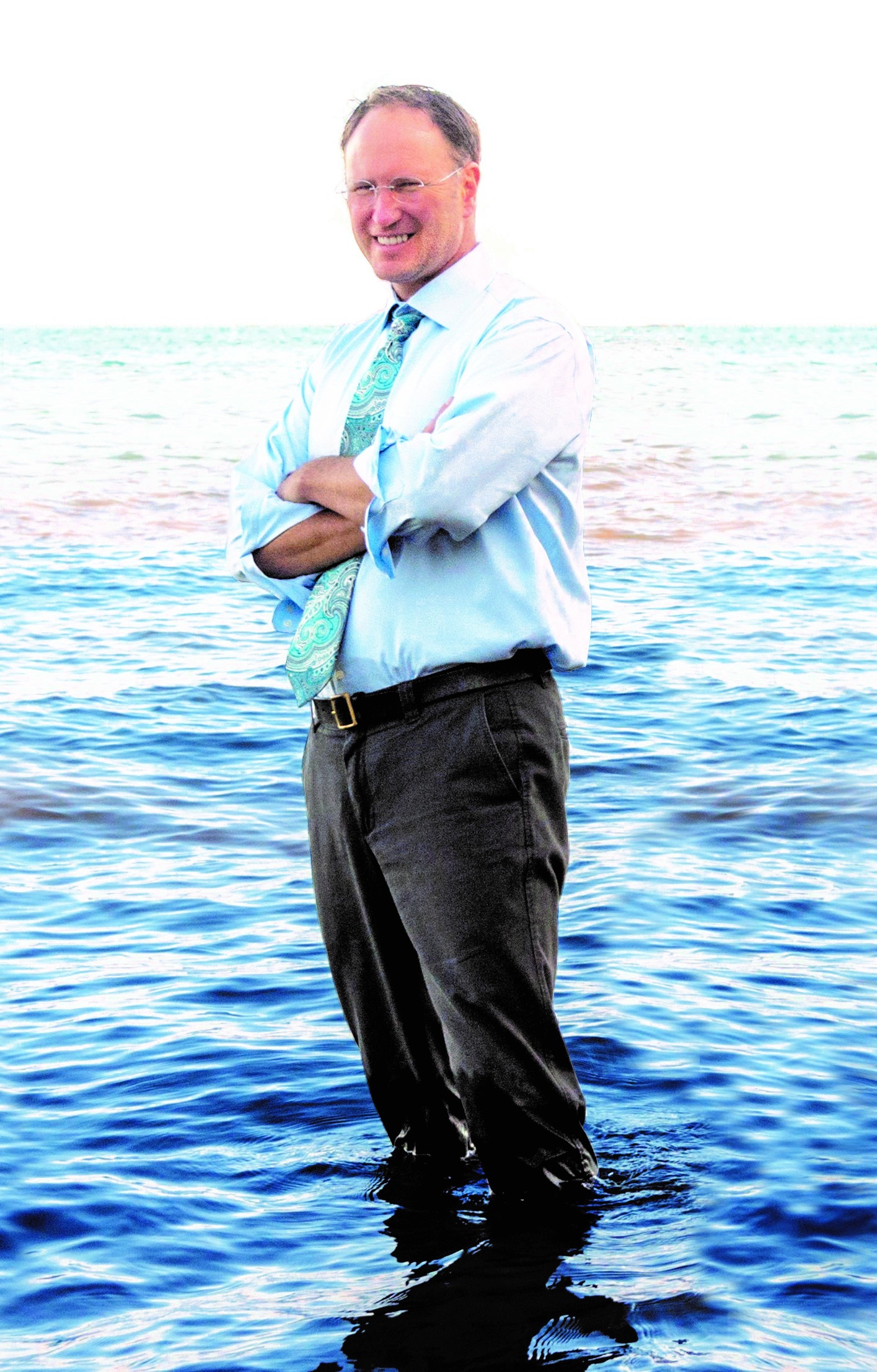
Cameron Davis. (Photo courtesy of Metropolitan Water
Reclamation District)
On funding Great Lakes programs, Chicago’s Davis understands the pressure that may come to reduce spending but said “we’ve worked really hard to keep Great Lakes protection and infrastructure above partisanship,” Davis said. He cited former President Donald Trump’s attempt to eliminate Great Lakes restoration funding that was met with a rebuke by Republican legislators.
But Davis cautioned that new expensive infrastructure projects like the project to stop Invasive carp “will continue to be an uphill battle.” The project at the Brandon Road Lock in Illinois is in the early design stages and faces significant bureaucratic and funding hurdles before it can become a reality. If it proceeds, it has an estimated completion date of 2030.
The project is also threatened with higher costs. Army Corps of Engineers spokesperson Allen Marshall told Great Lakes Now that the original cost estimate “can fluctuate for a variety of reasons that include inflation.” The project will be subject to annual appropriation of funds in the budget process to complete construction and support ongoing operations, according to Marshall, who said an updated cost estimate for the Brandon Road project is due early in 2023,
The project also requires a state sponsor to sign a partnership agreement and that is not in place, according to Marshall who deferred to the Illinois DNR for further comment.
Illinois DNR spokesperson Jayette Bolinski told Great Lakes Now that the DNR is working through a list of “key project challenges” and the partnership agreement is one of them.
Davis said until the Brandon Road project is complete, the multi-tiered defense established in 2010 to repel the carp continues to work. Given that the current defense is working, Great Lakes Now asked if the $858 million Brandon Road project is a “must have” for the region. “Until Brandon Road is built, protections are in place to minimize risk” Davis said.
Davis said in the legislative and funding process an effort by lawmakers in one party to “hold a budget hostage for policy reasons” is likely to happen again. And he cautioned to be aware of legislators who profess to support the Great Lakes then “vote against the funding packages that include support for the Great Lakes.”
On a broader scale, Davis is concerned about the region’s reduced influence in Washington due to loss of congressional seats based on population loss. The region has five fewer seats going into 2023.
James Weakley
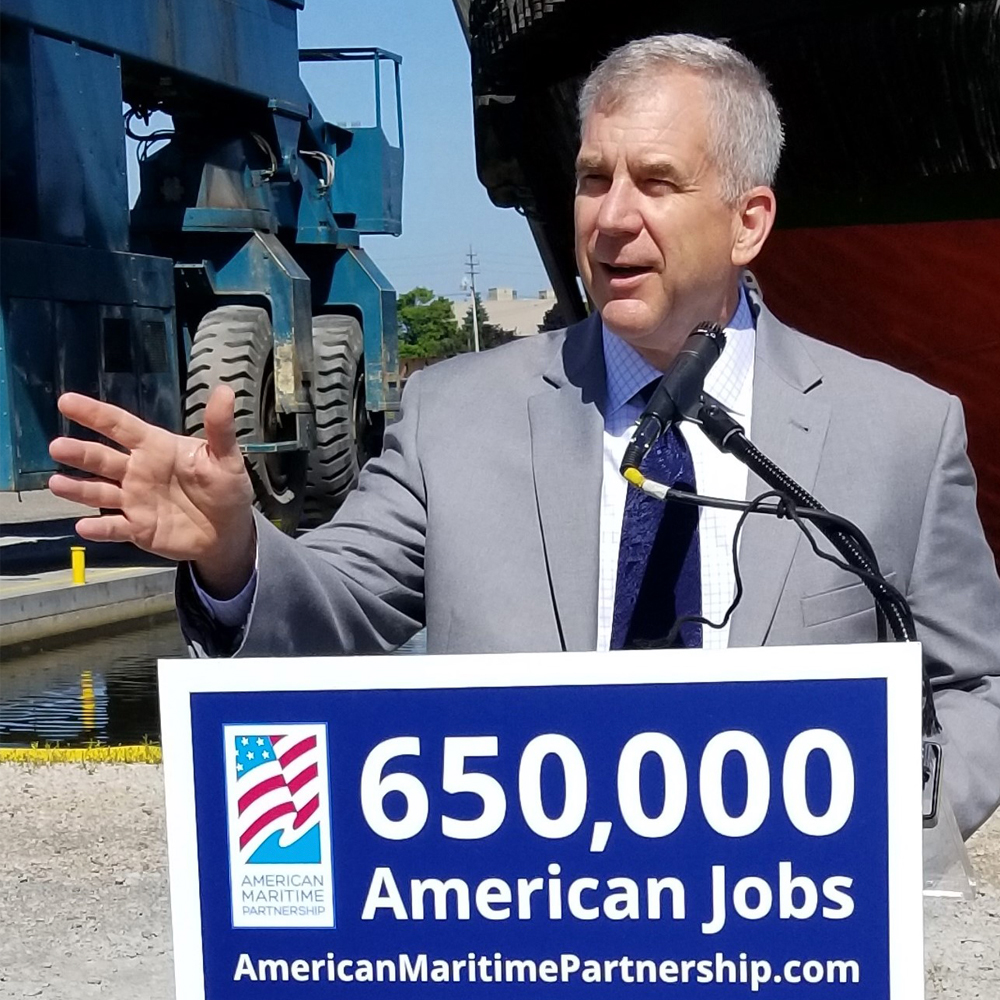
James Weakley. (Photo courtesy of American Maritime Partnership via James Weakley)
Ohio shipping executive Weakley does not see a major threat to Great Lakes programs based on the flip to Republican control in the House.
“Having Great Lakes state representatives from both parties on the House Appropriations and Transportation and Infrastructure committees mitigates the impacts of changes in party control,” Weakley said. Historically, the key party leaders have worked well together, according to Weakley.
But given Republican control of the House, he said the region shouldn’t expect “large one-time spending bills such as the infrastructure bill in the next Congress.”
A priority for the Great Lakes shipping industry has been a new ice breaker and $350 million was authorized in the recently passed $858 billion National Defense Authorization Act. Though it’s been authorized, it still has to be funded and it’s not Congress that’s the barrier to securing one, it’s the White House, Weakley told Great Lakes Now.
The Coast Guard has testified before Congress in support of a new ice breaker and there’s congressional support, but that “has not translated into funding requests from the administration,” Weakley said. And even within the Coast Guard, there may be competing priorities to be dealt with, according to Weakley.
The bottom line is a divided government makes it more complicated to move legislation, especially related to big changes in funding or policy. But the government can still function and incremental changes are possible, Weakley said.
Erika Jensen

Erika Jensen, (Photo courtesy of Great Lakes Commission)
Ann Arbor’s Jensen said the Great Lakes Commission looks forward to working with the new Congress and continuing the success of the last decade. She stressed the value of the role that partnerships and coalitions have played in shaping policy like the Great Lakes restoration program.
In their oversight of the U.S. EPA, House Republicans will take a hard look at the Waters of the United States Rule (WOTUS), according to reporting by E&E News.
WOTUS determines what bodies of water are subject to the Clean Water Act and has been controversial for decades with Democrats taking a broader view of which waters should be subject to Clean Water Act enforcement, while Republicans take a less inclusive approach.
How WOTUS addresses wetlands is important to the Great Lakes region as wetlands help filter toxicants that could flow to the lakes.
On more aggressive oversight by a Republican House, Jensen did not address specific issues but said the region has a “decades-long history of partnership across multiple levels of government within our region that allows us to proactively collect and share information, and generally avoid protracted regulatory disputes.”
A congressional priority Jensen will be tracking in 2023 is renewal of the Farm Bill. The Farm Bill is massive legislation authorized every five years that governs and funds multiple activities related to food, agriculture, commodity support and more.
Of interest in the bill to the Great Lakes Commission, according to Jensen, are agricultural growth, sustainability, resilience and conservation.
“We are particularly interested in expanding successful programs related to conservation practices that will keep nutrients like phosphorus and nitrogen on agricultural fields and reduce runoff into Great Lakes waterways,” Jensen told Great Lakes Now.
In the Great Lakes region, Lake Erie especially has been plagued by nutrient runoff from farms that fuel the lake’s infamous algal blooms each summer. In 2014 such a bloom caused Toledo residents to go without drinking water for three days.
Regulation of nutrient runoff from farms is excluded from the Clean Water Act and state and federal agencies primarily rely on financial incentives and voluntary use of best practices by farmers to limit runoff.
Great Lakes and University of Michigan scientist Don Scavia earlier this year told Great Lakes Now that reliance on those voluntary measures hasn’t produced results. Scavia said it’s time for the region to focus on outcomes, not practices and called for development of better regulatory frameworks.
Asked for a response to Scavia’s call for development of a regulatory framework, Jensen said the Great Lakes Commission will continue to support the states, provinces and Congress in their efforts to reduce nutrient runoff that causes algal blooms.
Jensen did not comment on Scavia’s call for regulation.
Catch more news at Great Lakes Now:
Buffalo legislator calls for bill of rights protection for the Great Lakes
Featured image: Reporter Kelly House and South Haven Department of Public Works Director Bill Hunter stand near the South Haven Area Water Sewer Authorities’ oldest water storage tank. (Photo Credit: GLN)
1 Comment
-
Just curious how Canada is involved if it is.


